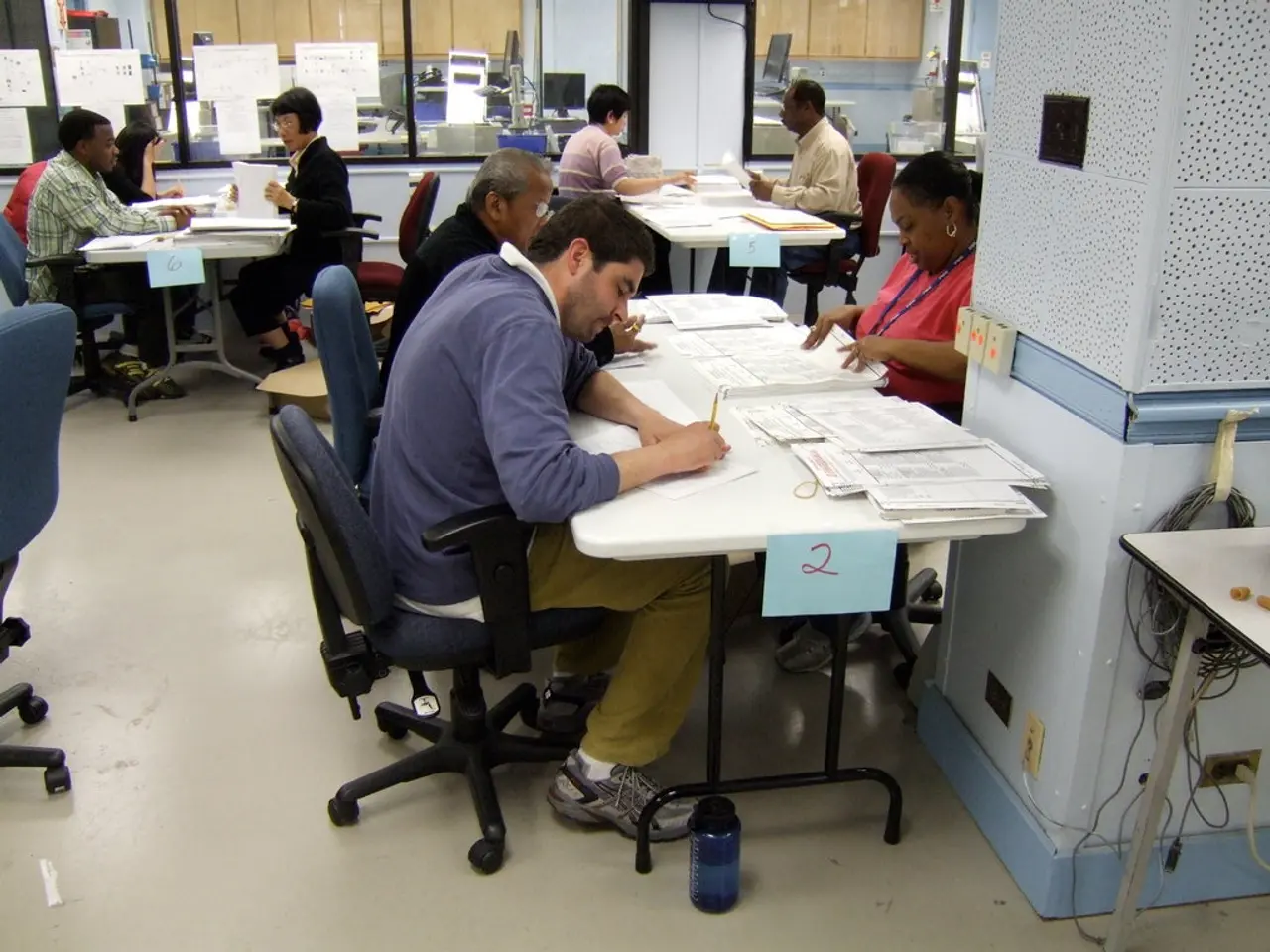Office Work Tricks Unveiled: The Uncensored, Unconventional Productivity Strategies You Aren't Employing Yet
In the fast-paced world of work, high performers are constantly seeking ways to maximise their productivity and focus on high-impact tasks. A recent trend has emerged, where these individuals are reclaiming an estimated 8 to 12 hours weekly for focused, high-leverage work, freeing themselves from unproductive busyness.
One of the strategies high performers employ is the practice of Selective Incompetence. By deliberately avoiding mastering or engaging deeply in low-value tasks, they can free up time and mental energy for more important work. This intentional "incompetence" allows them to delegate or minimize involvement in tasks that do not align with their priorities, thereby avoiding getting bogged down in less impactful activities.
Another strategy is Weaponizing their calendars. High performers assertively own their schedule, scheduling focused work blocks, minimising meetings, using calendar tools to guard against interruptions, and prioritising tasks that align with their highest impact goals. They treat time on their calendar as a scarce resource to protect, not an open invitation for others’ demands.
Practicing professional rudeness is another technique used by high performers. This does not mean being impolite, but rather setting clear boundaries, saying no, and resisting the social pressure to be constantly accommodating. By being firm and unafraid to turn down meetings or requests that do not support their priorities, they reduce distractions and time drains.
Utilising interrupt insurance is another strategy that helps high performers manage interruptions and urgent issues. By building buffer zones in their schedule or workflow, they prevent interruptions from cascading and derailing high-impact work sessions.
Energy Accounting, the practice of tracking and managing one’s personal energy rather than just time, is another crucial strategy. By allocating tasks according to when they have peak focus and stamina, high performers maximise effectiveness and reduce burnout, ensuring fewer hours are wasted on unproductive activities.
These strategies enable high performers to take control of their time, minimise low-value obligations, and maximise focused, high-leverage work. The goal is not nirvana but strategic prioritisation to maximise impact by reshaping one's work habits and boundaries.
Other techniques include Time Blocking with religious discipline, blocking travel time between locations, even for virtual meetings, and scheduling preparation time before important meetings to create natural buffers against schedule creep. High performers also spend 23% more time on core competencies by strategically avoiding low-value tasks and building relationships with colleagues who enjoy tasks they wish to delegate for win-win opportunities.
By implementing these strategies, high performers are able to transform their productivity from hoping for good days to engineering them, ensuring they are at the top of their game and making the most of their valuable time.
References: [1] Newport, C. (2016). Deep work: rules for focused success in a distracted world. Grand Central Publishing. [2] Covey, S. R. (1989). The 7 habits of highly effective people: powerful lessons in personal change. Free Press.
- Mindfulness and energy management are vital components in the strategies high performers use to enhance productivity, as seen in the practice of Energy Accounting.2.high performers deliberately avoid mastering low-value tasks, a strategy known as Selective Incompetence, to free up time and mental energy.
- Effective time management has become crucial in the fast-paced workplace, and one technique high performers use is Weaponizing their calendars, ensuring focus during priority work blocks.
- In pursuit of a focused and impactful work life, high performers practice professional rudeness, setting clear boundaries and saying no to unimportant meetings or demands.
- To mitigate interruptions and keep high-impact work on track, high performers employ interrupt insurance, building buffer zones in their schedule or workflow to prevent distractions.
- By investing more time in core competencies and delegating less important tasks to colleagues, high performers can boost productivity and personal growth, transforming their work habits to become more efficient and impactful.




